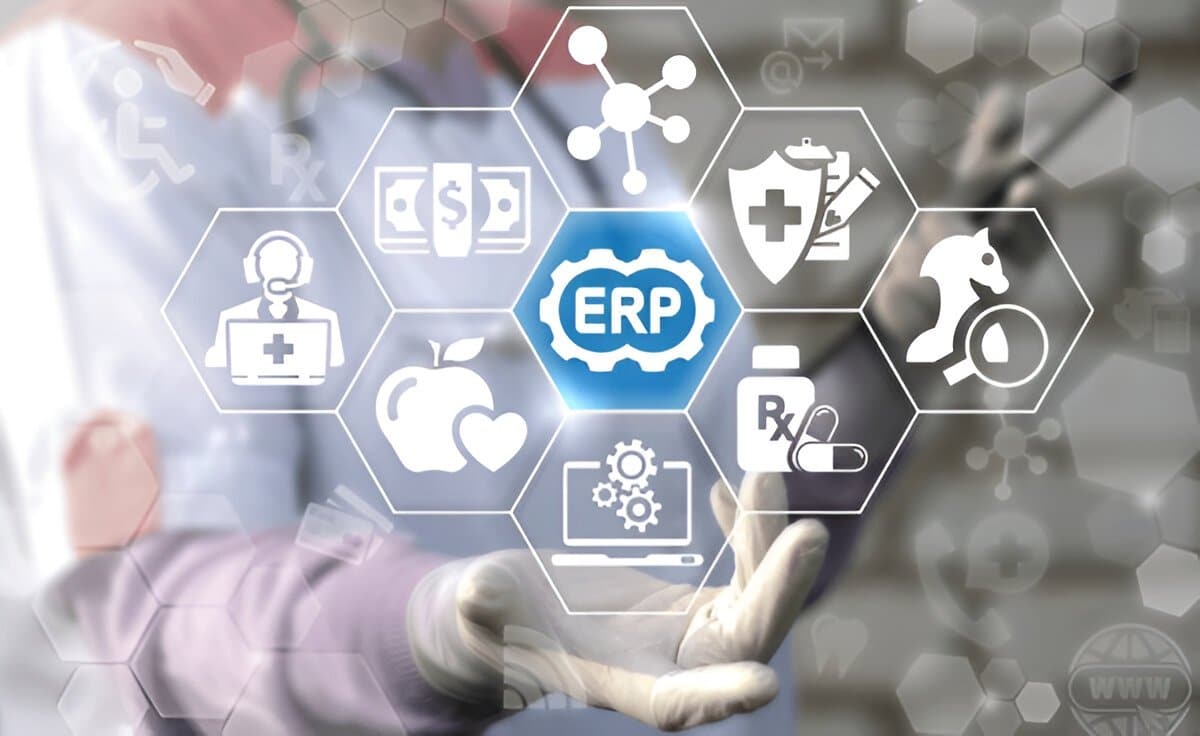Hospital ERP Software: Transforming Healthcare Management
- HIS (Hospital Information System) February 22,2025

Hospital ERP (Enterprise Resource Planning) software is revolutionizing healthcare management. It helps hospitals optimize various administrative, clinical, and financial processes. By implementing ERP systems, healthcare institutions can streamline operations, improve efficiency, and deliver better patient care. In this article, we will explore how hospital erp software is transforming healthcare management and why it is essential for modern healthcare systems.
What is Hospital ERP Software?
Hospital ERP software is an integrated system designed to manage the day-to-day operations of healthcare institutions. It combines various functions such as patient management, financial accounting, human resources, inventory management, and procurement into a single platform. This integration allows hospitals to operate more efficiently and improve overall service delivery.
Benefits of Implementing Hospital ERP Software
The advantages of using ERP software in hospitals are numerous. Here are some key benefits:
- Streamlined Operations: Hospital ERP systems integrate various departments, reducing duplication of efforts and improving workflow efficiency. This ensures smooth communication and data sharing across different departments, making the entire operation more cohesive.
2. Improved Patient Care: With better data management, hospitals can offer personalized care to patients. Real-time access to patient records, treatment histories, and medication information allows healthcare providers to make quicker and more informed decisions.
3. Cost Efficiency: ERP software helps optimize resource allocation by monitoring hospital supplies, managing inventory levels, and minimizing waste. This ultimately reduces costs associated with purchasing and inventory management.
4. Enhanced Financial Management: Hospital ERP software simplifies billing, invoicing, and financial reporting. It also helps track expenses, manage payroll, and ensure compliance with regulations. This results in better financial planning and management for healthcare institutions.
5. Better Decision-Making: ERP systems provide managers and administrators with real-time data and detailed reports, enabling them to make data-driven decisions. This helps hospitals identify areas for improvement, plan for future growth, and maintain a high standard of patient care.
Key Features of Hospital ERP Software
Hospital ERP software comes with a range of features tailored to meet the unique needs of healthcare providers. Some of the most important features include:
Patient Management: ERP systems allow hospitals to track patient admissions, discharges, appointments, and treatment history. This ensures accurate patient records and smooth patient flow.
Inventory Management: Efficient tracking of medical supplies, pharmaceuticals, and equipment helps reduce stockouts and overstocking. Hospitals can maintain optimal inventory levels, which improves operational efficiency.
Financial Management: The software streamlines the financial operations of a hospital, such as billing, payment processing, and insurance claims. It also tracks expenses and provides financial insights for better budget planning.
Human Resource Management: Hospital ERP software simplifies the management of healthcare professionals, including doctors, nurses, and administrative staff. It helps track working hours, payroll, leave management, and performance evaluations.
Electronic Medical Records (EMR): Integration of EMR with ERP software allows healthcare providers to access patient health records digitally, reducing paperwork and minimizing the risk of errors.
Compliance and Reporting: ERP software ensures that hospitals comply with healthcare regulations and standards by providing automated reporting and audit trails. This helps prevent compliance-related issues and penalties.
How Hospital ERP Software Improves Efficiency
Hospital ERP software enhances the overall efficiency of healthcare institutions in several ways:
Centralized Data Access: By consolidating data into a central system, healthcare providers can access important patient and hospital information in real-time. This eliminates the need for manual record-keeping and reduces the chances of errors.
Automation of Routine Tasks: ERP software automates routine administrative tasks, such as appointment scheduling, billing, and reporting. This reduces the workload on staff and allows them to focus on more critical activities, improving overall productivity.
Reduced Operational Costs: ERP systems enable hospitals to monitor and manage resources more effectively, leading to reduced operational costs. By streamlining inventory management, hospitals can avoid stockouts and unnecessary stock purchases, reducing waste and saving money.
Enhanced Collaboration: With real-time access to patient information, hospital staff can collaborate more effectively. Doctors, nurses, and administrators can work together seamlessly, providing better patient care and improving patient outcomes.
Choosing the Right Hospital ERP Software
When selecting ERP software for a hospital, it’s essential to consider several factors:
Customization: The software should be flexible enough to meet the specific needs of the hospital. Look for a solution that can be tailored to the hospital’s workflow and processes.
Scalability: As healthcare institutions grow, their needs change. The ERP system should be scalable and able to accommodate future expansions.
User-Friendly Interface: Hospital staff should be able to use the system without requiring extensive training. A user-friendly interface ensures smooth adoption and reduces the chances of errors.
Security and Compliance: Given the sensitive nature of healthcare data, it’s crucial that the ERP software adheres to industry standards and regulations such as HIPAA in the U.S. Ensure that the software provides robust security features to protect patient data.
- Support and Training: Choose a vendor that offers reliable support and training services to ensure the smooth implementation and ongoing operation of the ERP system.
Conclusion
Hospital ERP software is an invaluable tool for healthcare institutions seeking to improve efficiency, reduce costs, and enhance patient care. With its ability to integrate various hospital operations, streamline administrative processes, and provide real-time data, ERP software is transforming healthcare management. By adopting the right ERP system, hospitals can ensure better resource management, improved decision-making, and a higher level of patient satisfaction.
Investing in ERP software is not just a technological upgrade; it’s a strategic move that can help healthcare providers stay ahead in a competitive and rapidly evolving industry.









 Saudi Arabia (English)
Saudi Arabia (English) United Kingdom
United Kingdom Global Site
Global Site